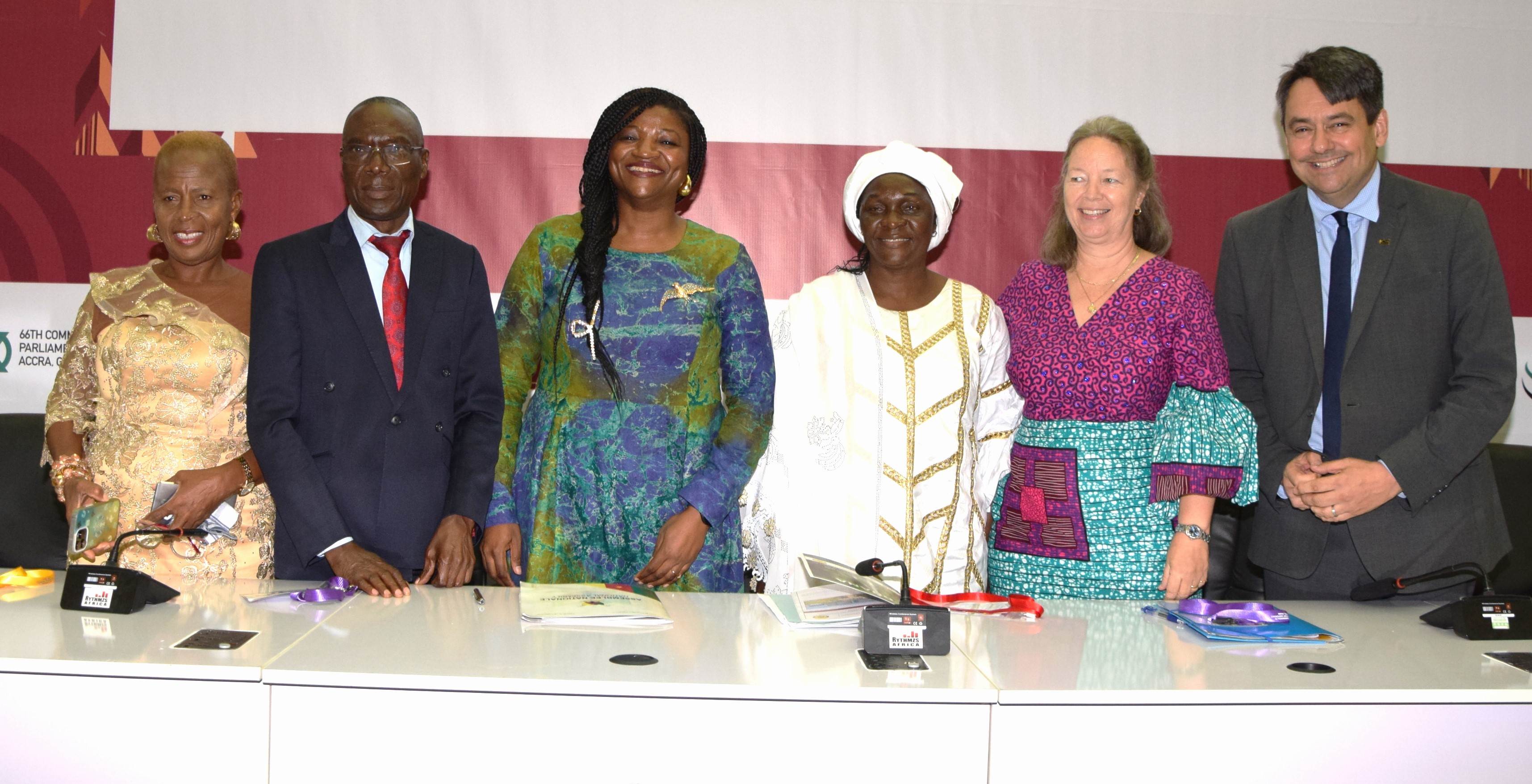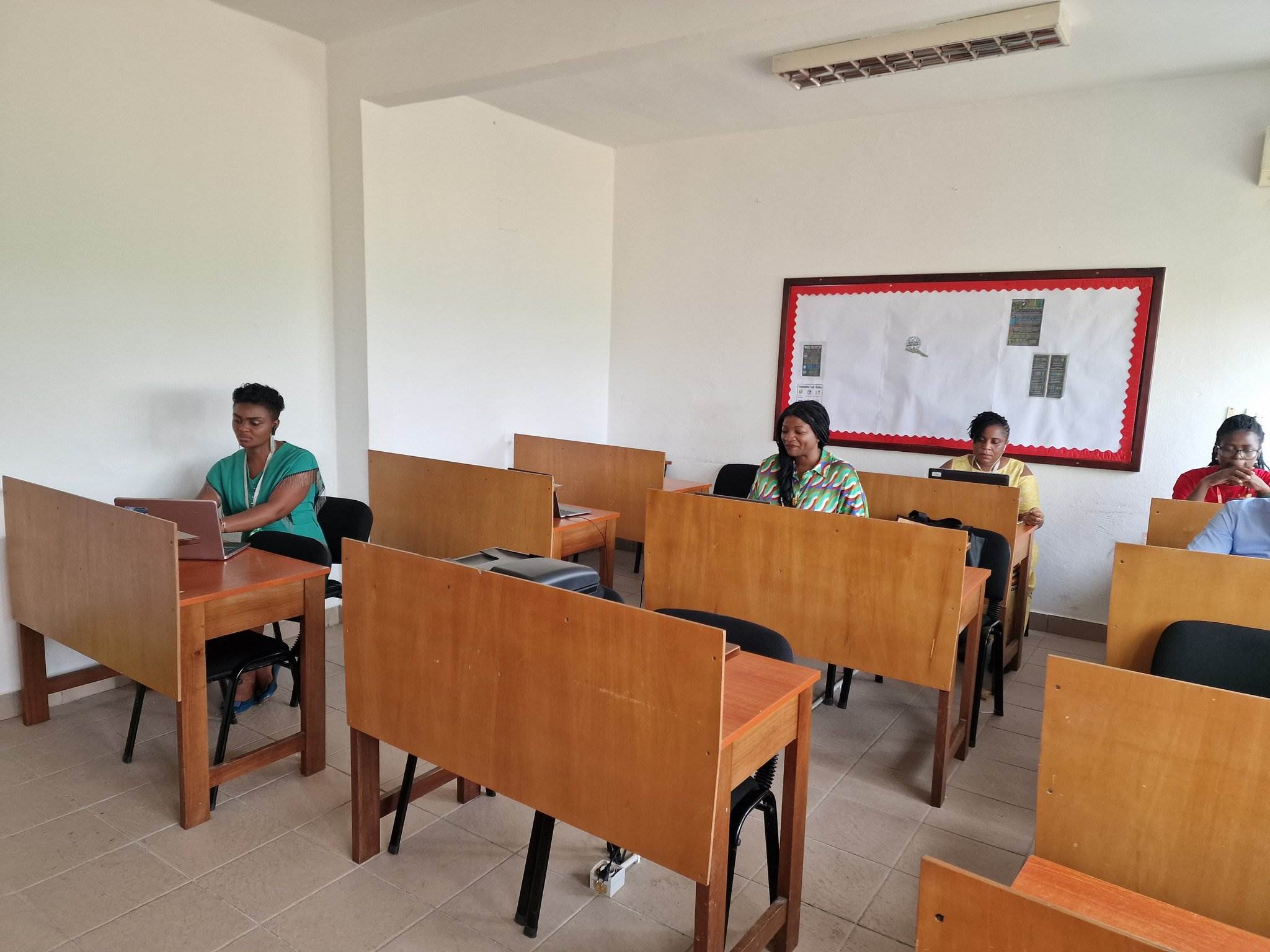
Education in crisis: the global learning poverty problem
The inaugural Emilia Monjowa Lifaka Lecture was delivered by Betty Abeng, CEO of the Commonwealth Education Trust, on 2 October 2023 at the 66th Commonwealth Parliamentary Conference in Accra, Ghana.
The lecture was established in memory of Hon. Emilia Monjowa Lifaka, the late Chairperson of the CPA International Executive Committee and Deputy Speaker of Cameroon. Hon. Monjowa Lifaka was a passionate champion of the CPA and served as CPA Chairperson from November 2017 to her untimely passing in April 2021.
In this extract from the lecture, which explored education, service and civic duty, Betty Abeng outlines the value of reading as a gateway for learning, the global learning poverty crisis and the need to invest in teachers to improve learning outcomes across the Commonwealth.
For more analysis on the state of education in the Commonwealth, read our recent blog series.
Learning to read is a milestone in every child’s life. My ability to read means you are all able to understand me, to connect with my journey.
Reading is a foundational skill.
All children should be able to read by age 10. Reading is a gateway for learning, as the child progresses through school – and conversely, an inability to read constrains opportunities for further learning.
In recent years, it has become clear that many children around the world are not learning to read proficiently. Even though most children are in school, a large proportion are not acquiring fundamental skills.
Moreover, 260 million children are not even in school. This is the leading edge of a learning crisis that undermines countries’ efforts to build human capital and achieve the Sustainable Development Goals (SDGs).
To spotlight this learning crisis, the World Bank and the UNESCO Institute for Statistics jointly constructed the concept of ‘learning poverty’ and an accompanying indicator.
Learning poverty means being unable to read and understand a simple text by age 10. This indicator combines schooling and learning metrics: it begins with the share of children who haven’t achieved minimum reading proficiency (as measured in schools) and is adjusted by the proportion of children who are out of school (and are assumed not able to read proficiently).
Consequently, the United Nations Sustainable Development Goal 4 (SDG4) aims to ensure inclusive, equitable, quality education for all, eliminate learning poverty (SDG 4.1.1 1b) and increase teacher training (4c).
When children cannot read, it’s usually a clear indication that school systems aren’t well organized to help children learn in other areas such as math, science, and the humanities either.
And although it is possible to learn later in life with enough effort, children who don’t read by age 10 – or at the latest, by the end of primary school – usually fail to master reading later in their schooling career.
This is a learning crisis further exacerbated by the adverse impact of COVID 19 that jeopardizes countries’ efforts to build human capital and achieve the Sustainable Development Goals (SDGs).
It stands in the way of nurturing future leaders.
Above: Betty Abeng speaks to the media after delivering the inaugural Emilia Monjowa Lifaka lecture
Without foundational learning, students will fail to thrive later in school or when they join the workforce, and this will ultimately impact their ability to serve and awareness of civic duty.
They will hardly be the next MPs, Speakers or leaders. We all have a role to play to help these children acquire the human capital they need to power their careers and economies once they leave school, or the skills that will help them become engaged citizens and nurture healthy, prosperous families.
Importantly, a lack of foundational literacy skills in the early grades can lead to intergenerational transmission of poverty and vulnerability.
There is enough evidence that shortcomings in the quality and quantity of schooling are a leading contributor to this human capital deficit.
Before the COVID pandemic, 57% of children in low- and middle-income countries could not read and understand a simple story by the end of primary school. In Sub-Saharan Africa, the rate was 86%. The dual shocks to education systems – school closures and the ensuing economic crisis – have only deepened this crisis.
We know that teachers have more impact in reducing this number and improving learning outcomes than any other factor.
The right investment in valuable Teacher Professional Development (TPD) leads to higher literacy and numeracy levels, increasing the prospects of thousands of children worldwide.
Fewer teachers would leave the profession, thanks to higher staff morale, and communities would become more developed and enriched.

Above: Betty Abeng sits in a classroom at the Dewey International School of Applied Sciences in Douala, Cameroon
As an accredited Commonwealth organisation, the Commonwealth Education Trust (CET) supports both SDG4 and the Commonwealth Charter by providing teachers in under resourced settings with a low-cost, digital, professional development (TPD) solution.
Our impact model is based on 4 core pillars:
- WE BUILD through our ed-Tech, award winning platform, Teach2030. Easy-to-use and low data, all teachers receive contextualised, assessed, and certified materials. Scalable and designed for whole school or independent learning, we encourage TPD to become standard practice, ensuring all continue to develop.
- WE ADVISE, as we focus on increasing learning outcomes and classroom knowledge, bringing sustainable TPD to teachers, governments, NGOs and other organisations.
- WE WORK TOGETHER through collaborating with worldwide partners - pooling knowledge and resources.
- WE ELEVATE by celebrating our global community of teachers, empowering them to design innovative solutions for their classrooms and discuss their practice with fellow educators.
It is vital to acknowledge that the 80 million teachers worldwide cannot be expected to be superheroes: we must build an education-supportive environment where the work of teachers is amplified outside the educational institution.
The CET hopes that through our investment in teachers, we will improve learning outcomes and encourage young people to find solutions within their countries - to give them a sense of hope.
